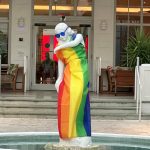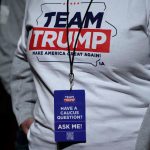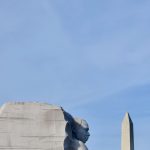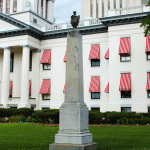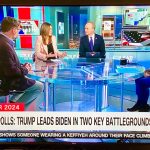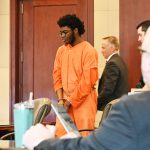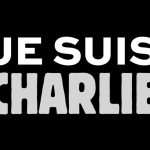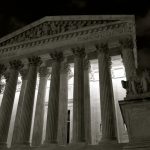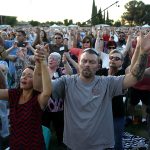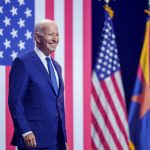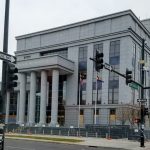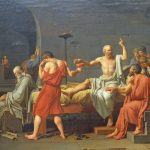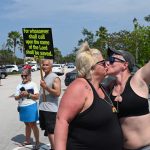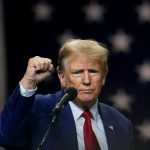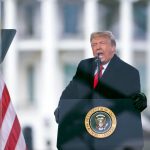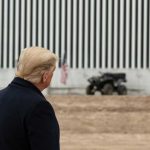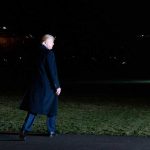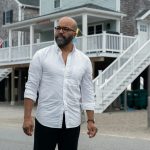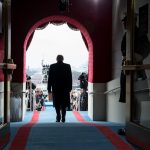A few people who call themselves parents but are really frustrated bullies who want everyone else to lead the miserable lives they do, at least when they’re not engaging in threesomes, have successfully made black holes of Florida’s school and classroom libraries and further marginalized slews of children whose one solace might have been that one book.
Commentary
Your Laundry Is a Top Source of Microplastic Pollution
The most common microplastics in the environment are microfibers – plastic fragments shaped like tiny threads or filaments. Microfibers come from many sources, including cigarette butts, fishing nets and ropes, but the biggest source is synthetic fabrics, which constantly shed them.
Airstrikes in Yemen Risk Only Strengthening Houthis
The Houthis stand to gain politically from these U.S.-U.K. attacks as they support a narrative that the group has been cultivating: that they are freedom fighters fighting Western imperialism in the Muslim world.
Stop the LGBTQ Cheap Shots
There are some feel-good bills and cheap shots that require no courage to vote for and bring the political bonus of being difficult for an opponent to argue against this summer, when most legislators will be back home running for re-election. And no topic makes for easier demagoguery than sex, specifically any activity that makes strait-laced Republicans a little squeamish.
70 Years After Brown vs. Board of Education, Deep Segregation Persists
In June 2023, the Supreme Court ended most race-conscious college admissions efforts. The decision followed the Covid pandemic, which exacerbated racial inequalities in the U.S.. Politicians and school boards have banned or removed books by authors of color from school libraries and restricted teaching about racism in U.S. history. These setbacks amid the current political climate make finally realizing the full promise of Brown more urgent.
Scattershot in 2016, Trump’s Iowa Campaign Was All Business This Time
Attention to organizing is a shift for the Trump campaign. Today, it looks nothing like the scattershot campaign from 2016, the only other time Trump has waged a nomination battle in the state. Trump’s nod to organizing is noteworthy and is at odds with his brand, which is more focused on stirring the pot and agitating, rather than painstakingly building an infrastructure.
Proposed Building Moratorium Addressing Flooding Concerns: An Exchange Between Home Builders and Pontieri
Members of the Flagler Home Builders Association have been writing Palm Coast City Council members to urge them to vote No on a construction moratorium City Council member Theresa Pontieri has proposed for 60 to 90 days on so-called “infill” lots in the city’s sections platted by ITT. What follows is an exchange that took place today between a home builder and Pontieri on the proposal. The council meets Tuesday and may take up the issue then, depending on other developments.
The Check MLK Wanted Cashed for the ‘Riches of Freedom and the Security of Justice’ Is Still Bouncing
The African American community is experiencing record low unemployment, record highs in income and educational attainment, and has seen a massive decline in income poverty since the 1960s. Despite all that, the check for racial economic equality is still bouncing. Without intervention, it will take centuries for Black wealth to catch up with white wealth in this country.
Was Going to Space a Good Idea?
Nations are competing to exploit lunar and asteroid mineral resources. Private corporations and space billionaires are increasingly being touted as the way forward. After the Moon, Mars is the next world in line for “conquest”. The contemporary movement known as longtermism promotes living on other planets as insurance against existential risk, in a far future where humans (or some form of them) spread to fill the galaxies.
Welcome to the Old South, The Myth that Refuses to Die
In Florida, we prefer not to discuss ‘slavery’ unless we are enlightening the ignorant about how it was Not That Bad. You have only to read Miss Margaret Mitchell’s brilliant and perfectly accurate novel to see the Truth of this.
How Coca-Cola Took Africa
A new book called Bottled: How Coca-Cola Became African tells the story of how the world’s most famous carbonated drink conquered the continent. It’s a tale of marketing gumption and high politics and is the product of years of research by critical writing lecturer Sara Byala, who researches histories of heritage, sustainability and the ways in which capitalist systems intersect with social and cultural forces in Africa.
NRA Scandal and The Importance of ‘Designated Contrarians’ on Boards
Nonprofit boards should require their members to take turns serving as “designated contrarians.” When it’s their turn for this role, board members would be responsible for asking critical questions and pushing for deeper debate about organizational decisions.
Elise Stefanik’s Immoral Compass, and Ours
When Rep. Elise Stefanik grilled then-Harvard President Claudine Gay about her “moral clarity” about genocide and bullying on campus, Israel was in its eighth week of the most genocidal assault on Palestinians in the history of Arab-Jewish wars predating even the creation of Israel in 1948. None of it was relevant to Stefanik, because when Israel is the subject matter, there are no two sides to the story. There are no interpretations. There is no discussion. None permissible, anyway. There is only dogma. Anything else is heresy.
Where the Humanities and Medicine Meet
While there is a long history of doctor-poets – one giant of mid-20th-century poetry, William Carlos Williams, was famously also a pediatrician – few people seem to know this or understand the power of combining the humanities and medicine. Literature has had a large role in helping the author define the kind of physician she strives to be – one who is not only empathetic and a good listener but also a fierce advocate for changing the sociopolitical forces that affect patients’ lives.
How Pundits Help, Hurt and Reflect Democracy
Pundits can play a productive role by focusing on issues rather than identities. They contribute to democratic backsliding when they cultivate dystopian views of politics. The best example is the relentless negativity that characterized commentary on presidential candidates Hillary Clinton and Donald Trump in 2016.
The Brendan Depa I Have Come To Know
Brendan Depa, the former Matanzas High School special education student who pleaded guilty to the beating of Joan Naydich, his paraprofessional, last February, will be sentenced on Jan. 31. Gene Lopes is a retired special education teacher who has spent the last several months tutoring Depa at the Flagler County jail. Here’s his experience.
An American Invention, the Shopping Mall’s Evolution Is Now Owned By China
Many Chinese malls are being re-imagined by owners and users as palaces of experience – civic areas for communities to meet and interact, with new configurations of public and private space. These experiments could become models for new, creative uses of retail space in the U.S., where the mall was invented.
3 Months of Devastation in Gaza for This: Stalemate
Three months after the current conflict began, civilians have borne the brunt of the violence on both sides, with the deaths of more than 22,000 Palestinians in Gaza and 1,200 Israelis. Some 85% of Gazans have also been displaced and a quarter of the population is facing a famine, according to the United Nations. The conflict still has a long way to run and may be headed towards stalemate.
#JeSuisCharlie Went Viral 9 Years Ago. It Couldn’t Happen Today.
The immense popularity of #JeSuisCharlie is a prime example of how the technology available to us can shape our understanding of shared experiences. The hashtag #JeSuisCharlie capitalised on these. It was widely adopted by those defending free expression, but a flurry of counter-narratives quickly emerged providing alternative perspectives on the attack.
For Supreme Court, a ‘Monumental’ Decision on Donald Trump’s Ballot Eligibility
Momentous questions for the U.S. Supreme Court and momentous consequences for the country are likely now that the court has announced it will decide whether former president and current presidential candidate Donald Trump is eligible to appear on the Colorado ballot.
School Board and Other Elected Officials Could Soon Be Barred from Censoring People on Social Media
At stake is what constitutes state action – or action taken in an official governmental capacity – on social media. Under the First Amendment, officials engaging in state action cannot restrict individuals’ freedom of speech and expression. The ruling could establish whether social media accounts of public officials should be treated as personal or governmental.
The Generosity and Warmth of Poet Seamus Heaney
The English war poet Wilfred Owen once wrote, “Celebrity is the last infirmity I desire.” Killed in France at the age of 25, unpublished and unknown, “celebrity” for Owen was a posthumous phenomenon. By contrast, celebrity status for the Irish poet Seamus Heaney – “Famous Seamus” – came early in his life.
A Note To My Grandson
Well dear Felix, this is the day chosen for you–as so much has been since before your conception, as almost everything will be for the next dozen years, as most things will be after that–to be born into this, not quite our world: you arrived as scheduled a little after 7 this morning, your time.
How Religion and Politics Will Mix in 2024
Religion is likely to play a big role in voters’ choices in the 2024 presidential election – much as it did in previous years. Despite an overall shift away from participation in organized religion in the U.S. populace, religious rhetoric in the political arena has intensified with end-times rhetoric, talk of divine mandates and the intersection of white supremacy and Christian nationalism.
Will Biden’s Ego Bring Trump Back to the White House?
Is Biden’s evergreen ego — his scrappy Scranton Joe determination — outpacing his ability to win a tough election, much less govern a bitterly divided country until 2029? Will there be dire consequences because the man who had been yearning to be president since he was 46 resists giving up the job at 81? Should he have stepped aside for someone younger?
How Simone de Beauvoir, Hannah Arendt, Simone Weil and Ayn Rand Changed Our World
Wolfram Eilenberger’s “The Visionaries” is a wild ride through ten of the worst years in the 20th century, and is told through the occasionally intersecting lives of four brilliant young women philosophers: Simone de Beauvoir and Simone Weil (both French), Russian-American Ayn Rand, and German-Jewish Hannah Arendt, who spent time exiled in France and New York.
A Colorado Justice’s Dissent on Insurrectionists Signals Trouble or Democracy
Chief Justice Brian Boatright’s opinion in the Colorado Supreme Court case excluding Donald Trump from the ballot encapsulates a misunderstanding of — or refusal to accept — Section 3 of the 14th Amendment even among some of the nation’s highest ranking jurists, and it reflects the unfolding failure of U.S. institutions to sustain constitutional order in the face of an existential threat.
Visiting a Museum Could Be the Secret to a Healthier Life
A Canadian medical association launched the museum prescriptions program in 2018. The project has enabled thousands of patients to get a doctor’s prescription to visit a museum, either on their own or accompanied. The aim of the prescription was to promote the recovery and well-being of patients with chronic illnesses (hypertension, diabetes), neurological conditions, cognitive disorders or mental health problems. The decision to write the prescription was left to the discretion of the doctor.
Can We Still Find Common Ground?
Many Americans today worry that our nation is losing its national identity. Some claim loudly that the core of that identity requires better policing of our borders and preventing other races or religions or ethnicities from supplanting white Christian America. But that is not what defines our national identity. It’s the ideals we share, the good we hold in common.
Five Movies to Better Understand the Climate Crisis
The holiday season is, for many, a time for cherished rituals and down time, including watching movies like It’s a Wonderful Life, Elf or Die Hard. But this season is also a time for reflection on our lives and the world around us beset by conflict — and the worsening climate crisis. Here are five film recommendations to help combine ritual and reflection.
You Must Switch Off From Work. Here’s How.
It may not be enough simply to be physically away from work, particularly in an era when so many of us work from home. We also have to stop thinking about work when we’re not there – whether it’s fretting over your to-do list while out at dinner, thinking about your unanswered emails while you’re at your daughter’s soccer game, or lying in bed pondering what you’ll say at tomorrow’s board meeting.
Can the Economy Continue to Avoid a Recession in 2024?
The fundamentals are strong and may be on the rise, if you believe chief financial officers. Plus, despite dysfunction in Washington, recent laws and policies like the CHIPS and Science Act, the bipartisan infrastructure deal, the AI Bill of Rights and the Executive Order on Safe, Secure, and Trustworthy Use of Artificial Intelligence could further boost economic growth by stimulating job creation and enhancing competitiveness.
Migrants Ace Their Citizenship Tests Routinely. Could You?
At least 9 out of 10 applicants for legal immigration routinely pass a rigorous citizenship test, but an alarmingly high percentage of native-born Americans experience difficulty listing the three branches of government (“Lather, rinse, repeat?”) or remembering the name of their state legislator.
The Curious Joy of Being Wrong
The death of the author’s brother shattered his deeply held evangelical beliefs. This deep loss started a period of questioning in light of the evidence of the author’s experience, leading him to revise his worldview in a way that felt authentic. He changed his mind about a lot things.
Blessings for LGBTQ+ Couples: Pope Francis’s Historic Gesture
Pope Francis’ Dec. 18, 2023, announcement that Catholic priests may bless LGBTQ+ couples and others in “irregular” situations marks a definitive shift in the Roman Catholic Church’s posture toward many types of loving relationships. It may also mark a definitive turning point within the Roman Catholic Church.
My Father’s Crèche
Taking down Christmas decorations can be difficult when they serve as buffers to memories as painful to remember as one is grateful not to have forgotten them, especially as we age: my father has been dead nearly 50 years, but that chasm of time disappears in the still-vivid hammer sounds of the crèche he built us every Christmas, and the joys of my mother’s New Year’s Day parties before lives became war zones.
St. Francis and the Nativity Scene’s Nativity
Francis in 1223 sought permission from Pope Honorious III to do something “for the kindling of devotion” to the birth of Christ. As part of his preparations, Francis “made ready a manger, and bade hay, together with an ox and an ass,” in the small Italian town of Greccio.
Here’s Why, Scientifically Speaking, Sloppy Gift-Wrapping Is Better
Consumers in the U.S. spend billions of dollars a year on wrapping gifts, in most cases to make their presents look as good as possible. But beautiful presentation doesn’t lead to a better-liked gift. A study showed that those who received a sloppily wrapped gift liked their present significantly more than those who received a neatly wrapped gift, regardless of what was inside. Yay for the sloppy!
Night of the Pies: Christmas Eve, 1967
My after-school job my senior year of high school was in a bakery attached to a supermarket in my home town, a sort of Jurassic Publix setup. On the night before Christmas Eve, we had orders for a little over 400 pies. The baker asked if I would work with him through the night and, needing the money for my college fund, being locked in an empty supermarket to bake 400 pies for twelve hours at overtime rates seemed like a wonderful idea.
Trump Claims Constitution Gives Him Immunity. Judges May Not Agree.
Former President Donald Trump has claimed he is immune from prosecution – specifically on the federal charges that he tried to subvert the results of the 2020 presidential election. He says that his actions in connection with the 2020 election were part of his official duties, and he also argues that because he was not convicted during either of his impeachments, he cannot be tried in a criminal court for his actions.
Grief and the Holidays
The holidays negatively affect many people’s mental health as the holidays for many are stark reminders of grief and of whom – or what – they have lost. About 10% of bereaved adults are at risk of prolonged grief disorder, and those rates appear to have increased in the aftermath of the pandemic.
America’s Obsession with Evil: ‘The Exorcist’ at 50
In the 50 years since “The Exorcist” premiered, the cultural fascination with Satan has persisted. But as religiosity has waned, popular portrayals of Satan have also changed. Rather than embody pure evil, Luciferian characters that are complicated – even likable – have emerged.
A Constitutional Scholar Explains Colorado Court’s Trump Ballot Ban
Taken as a whole, the structure of Section 3 of the 14th Amendment leads to the conclusion that Donald Trump is one of those past or present government officials who by violating his oath of allegiance to the constitutional rules has forfeited his right to present and future office.
Guadalcanal Memories: Remembering the Mosquito Bowl on Christmas Eve, 1944
No football game ever played, or ever to be played, will exceed the drama surrounding the Mosquito Bowl, played on insect-infested Guadalcanal in 1944. The 4th and 29th U.S. Marine Corp regiments faced off before their next stop, Okinawa.
Why Did This Bottle of Whiskey Sell for $2.7 Million?
Some investors see luxury collectibles, such as high-end whiskey bottles or casks, as an alternative to other assets like stocks and bonds. But the high price may also have a lot to do with the increasing focus on the purported authenticity of craft products – especially ones like Scotch whisky, which trade on their heritage as much as their flavor.
Trump Borrows Hitler Language in Anti-Immigration Speech in New Hampshire
Trump, the front-runner for the Republican nomination for president in next year’s election, said that immigrants were “poisoning the blood of our country.” He pledged to toughen immigration laws, including by reinstating a travel ban from “terror-plagued countries” and requiring “strong ideological screening” for immigrants in the country without authorization. Hitler used similar language about Jews “poison[ing] the blood of others,” in “Mein Kampf,” his 1925 manifesto.
Populism Is Undermining Our Elections
At the heart of liberal democracy lies the principle of pluralism, that there are diverse views on how society should work and that numerous institutions operate independently to balance competing interests. For this principle to work, it’s important that the public trust that these diverse voices act in good faith. Populism undermines that trust.
An Affair to Dismember: The Tawdriness of Florida’s GOP Chair and His Moms for Liberty Phony
Republicans cast themselves as the party of piety, traditional gender roles, and family values. This is at odds with reality. Florida GOP chairman Christian Ziegler is accused of rape. His wife Bridget, co-founder of Moms for Liberty and member of the Sarasota School Board who has vowed to bring “religious values” to education, also admits to having an affair with her. Gov. Ron DeSantis had said he wished he could put a Bridget Ziegler on every school board “in every county in Florida.”
‘American Fiction’: Who Gets to Decide Blackness?
Directed by Cord Jefferson and starring Jeffrey Wright, the film presents an opportunity to talk about race, power and white supremacy within intellectual and cultural spaces, including higher education. Specifically, what version of Blackness is acceptable or saleable within American culture?
When Trump Says He’ll be a Dictator, Believe Him
The twice-impeached Trump has made it clear he is still seething about being voted out during the 2020 election. The emotions Trump harbors toward his Republican rivals are volcanic levels of seething anger. His dictatorial impulses–and ambitions–have to be taken seriously.







